Tourism In Nigeria 2023 _You Don’t Know This About Nigeria!!
Tourism In Nigeria is one of the things you should do in 2023!! Have you taken a tour around Nigeria in 2023, I bet You Don’t Know This About Nigeria!!
Nigeria is located in West Africa, known for its rich cultural heritage, diverse landscapes, and booming economy. It is the most populous country in Africa and home to a diverse range of ethnic groups and languages. Nigeria has a rich history and is known for its essential role in the transatlantic slave trade and its contributions to the development of African arts and culture. Nigeria’s Growing Economy With its expanding business environment increased investment, and efforts to improve the business climate, Nigeria’s economy has grown at an impressive pace in recent years. The country is now considered one of the fastest-growing economies in Africa, with a large and diversified economy that is poised for further growth.
Nigeria has a wealth of cultural heritage to offer visitors. The country has been making headlines for its rapid economic growth, which has led to the development of several key industries, including agriculture, oil and gas, manufacturing, and telecommunications. The Diverse Cultural Heritage of Nigeria With a long and rich history, is a source of pride for its people. From its role in the transatlantic slave trade to its contributions to African arts and culture, Nigeria has much to offer visitors who are interested in exploring its cultural heritage.
As one of the largest oil-producing countries in Africa, Nigeria has a thriving oil and gas industry that plays a major role in its economy. The country is a key player in the global oil market, and efforts are underway to diversify the economy and reduce its dependence on oil and gas. Nigeria is also known for its vibrant arts and culture scene, which includes music, dance, visual arts, and literature. Visitors can explore Nigeria’s rich cultural heritage through its museums, festivals, and cultural events, or by visiting one of the country’s many historical sites.
Tourism in Nigeria gives you access to Exploring its Natural Beauty and History. With its diverse landscapes, rich cultural heritage, and growing tourism industry, Nigeria is an exciting destination for visitors who are interested in exploring its natural beauty and rich history. From its stunning waterfalls and wildlife to its historical sites and cultural events, there is much to discover in Nigeria.
Top Hotels In Nigeria:
- Lagos Continental Hotel
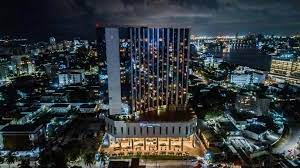
- Transcorp Hilton Abuja

- Eko Hotels & Suites

- Radisson Blu Anchorage Hotel, Lagos

- The Federal Palace Hotel
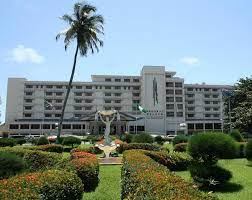
The Federal Palace Hotel Nigeria
- The Wheatbaker

- The George

- BON Hotel Grand Towers

BON Hotel Grand Towers Nigeria
- Bristol Palace Hotel
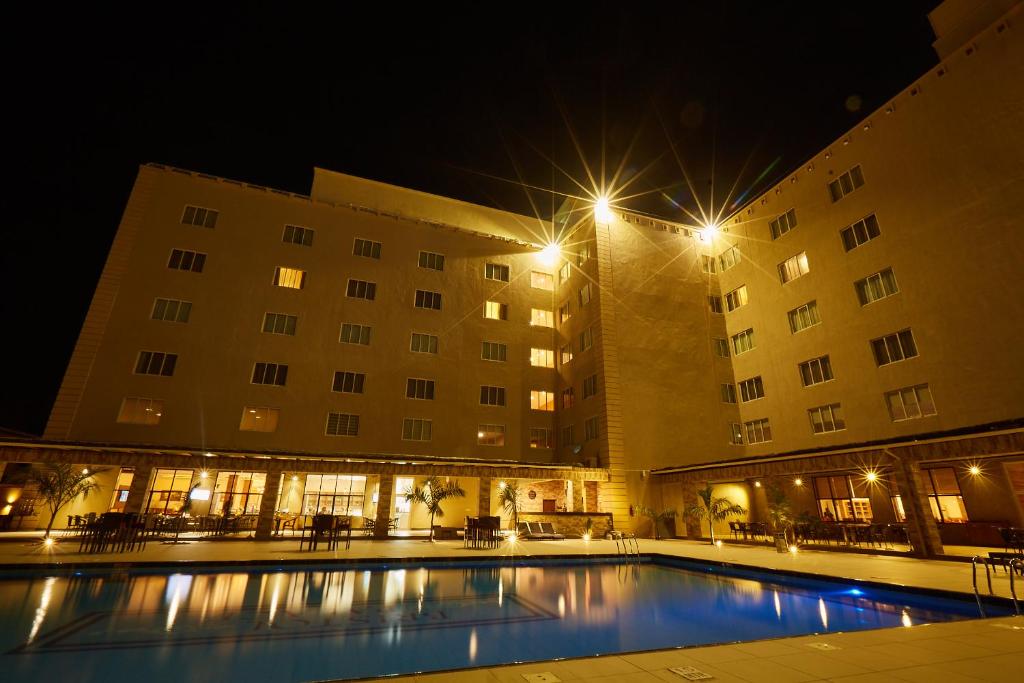
- Lagos Oriental Hotel
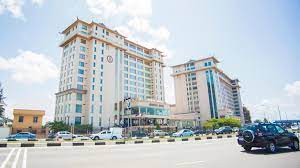
Top Restaurants In Nigeria
1. Browns Café & Restaurant

2. Ocean Basket

3. Terra Kulture Food Lounge Nigeria

4. BluCabana Restaurant & Cafe

5. Jevinik Restaurant

6. Fulani Pool Bar and Restaurant
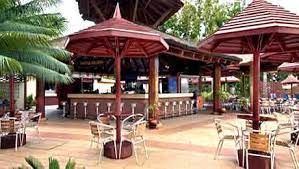
7. Elephant Bar

8. Road Chef Fast Food & Restaurant

- Mr Biggs

1O. Eastern Garden Chinese Restaurant
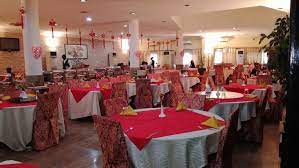
Top Attractions in Nigeria
1. Olumo Rock
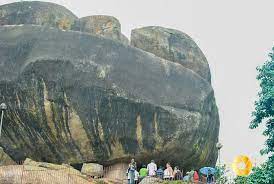
- Yankari Game Reserve
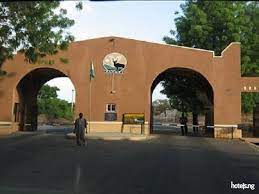
- Lekki Conservation Centre

- . Lekki Conservation Centre

- Agbokim Waterfall

- Aso Rock
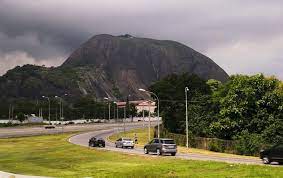
. 7. Agodi Gardens

8. . Agodi Gardens

- Osun Sacred Grove
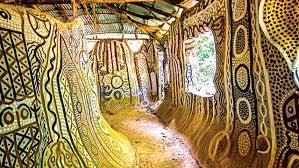
- Obudu Mountain Resort

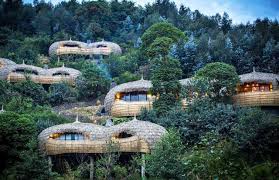
Things To Do In Nigeria
- Discover the Incredible Rock with a Face
- Admire Idanre’s Beauty
- The Ibeno Beach is at Your Service
- View Ancient Artifacts from the Former Kingdom
- Explore the World of Unusual Features
- Be Captivated by the Majestic Waterfalls’ Beauty
- Experience the “Beauty and the Beach” view.
- Ride the rides and slides at the amusement park
- Take in a natural beauty 13. Stroll down the coconut aisle!
Destination Guide To Nigeria
To keep things simple, book flights to Lagos or Abuja. There are smaller airports in the country, but flying into Lagos or Abuja is your best bet. Examine a map to determine which airport is closest to your hotel or resort, and then book your flight. Even if you’re taking a longer trip, book your return tickets as well. To enter the country, you must have a return ticket. Nigeria’s visa application process is unusual. You must book your hotel and flights before submitting a visa application.
Best Time To Visit Nigeria
The dry season in Nigeria runs from November to January. The climate varies greatly by latitude and altitude; the arid Sahel in the north sees little rainfall, beginning in April, whereas the humid south sees rains as early as March or even February. The north is hotter, with temperatures frequently exceeding 40°C, though the heat is dry. The south, with temperatures averaging 32°C, suffers from high humidity. The Saharan harmattan wind cools things down in December, but it also brings unpleasant dryness and dust. The months of March to May are the hottest.
Click to get the best trip offers for tourism in Nigeria
Reach out to us via call or WhatsApp chat @ +229 67249558, to have the latest trip offers available and join our membership clubs as you will be getting discounts and the latest updates on our tourism offer around the world
RELATED POSTS




 Protected by Patchstack
Protected by Patchstack